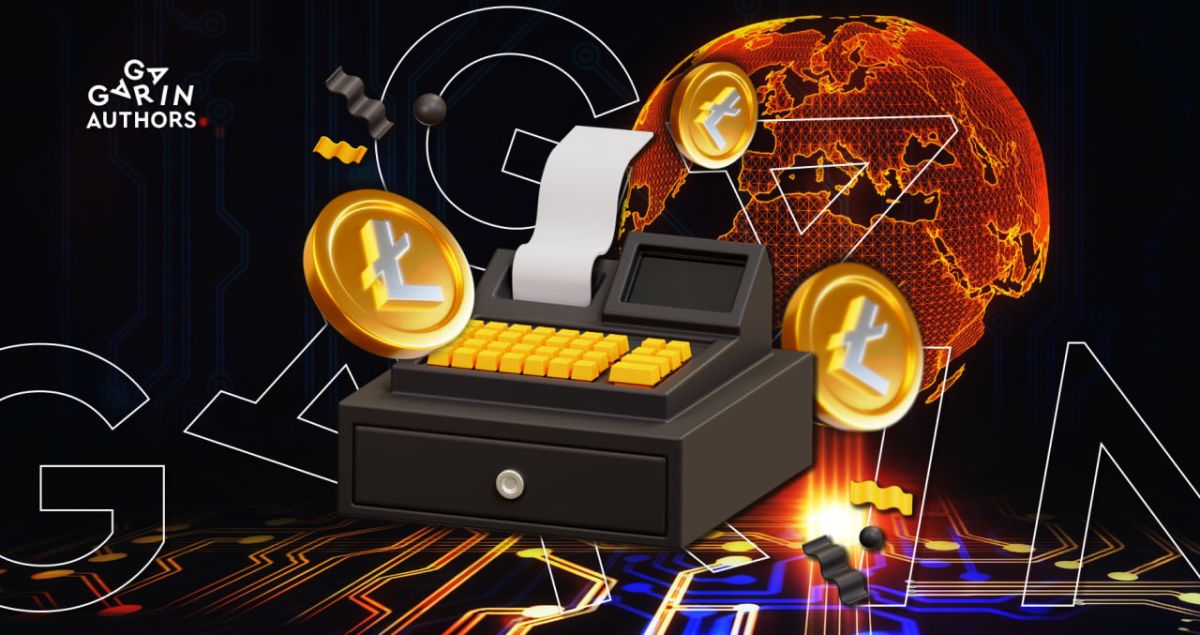Purchases with Litecoin through the BitPay service

There are more and more stores and companies accepting cryptocurrency as a form of payment. Litecoin is one of the most popular coins for shopping. Is Litecoin going to be the next global payment system?
On this page
Purchases with Litecoin through BitPay
Litecoin is one of the first cryptocurrencies. It was created in 2011 as a Bitcoin fork and conceived as a lightweight version. Litecoin had the advantage of faster and cheaper transactions, making it the ideal coin for payments.
The key event for Litecoin was the partnership with BitPay in June 2021. This allowed users to pay with cryptocurrency in many leading online stores.
BitPay is the world's largest payment service that allows merchants to accept cryptocurrencies. The company was established in 2011 and is a pioneer in blockchain-based payment technology.
There are four ways a buyer can pay for their purchase with cryptocurrency:
1. Send Litecoin from your wallet to the seller's wallet
2. Pay with Litecoin if the seller has the function of accepting payments in cryptocurrency
3. Buy a gift card for Litecoin and then pay using it
4. Pay with a BitPay card
With Litecoin and BitPay, you can pay with cryptocurrency, just like you pay with dollars. You can come to the store, choose a product and purchase it with a BitPay card.
By choosing “use BitPay as a payment method”, your Litecoin wallet will instantly be debited with the required amount of cryptocurrency, equivalent to the goods' cost. Moreover, the BitPay card can be used at any ATM, turning Litecoin into cash.
BitPay has connected thousands of merchants with millions of buyers who want to pay with cryptocurrencies. Since the partnership started, the service has processed over 180,000 payments worth $30+ million.
Litecoin Monthly Payments Grow 109% in Just One Year
The most popular coin for payments on BitPay is still Bitcoin. It accounts for 41% of all transactions. Litecoin is in second place, holding a solid share of 27%. In third and fourth place are Ethereum (~11%) and Dogecoin (~9%).
However, the percentage of Litecoin payments relative to all other cryptocurrencies on BitPay is steadily growing.
In addition, the ratio of Litecoin payments to all other cryptocurrencies, present in BitPay, is steadily increasing.
And in just the last 6 months, Litecoin transactions amounted to more than 135 thousand.
North America is the most active region where Litecoin is used. Recently there has been a significant activity surge in the countries of EMEA (Europe, Middle East, Africa), Latin America, and APAC.
Most often, Litecoin is used to buy gift cards. BitPay lets you buy cards from over 100 brands like Amazon, Walmart, Uber, Google Play, Sony PlayStation, Xbox, Airbnb, Domino's, and more.
Other areas where users prefer to make purchases are electronics, computer games, precious metals, VPN/hosting, the Internet, and logistics.
The main advantage of Litecoin is speed, which allows you to make transfers almost instantly while at a meager commission. BitPay states the average Bitcoin payment fee is around $0.3, while Litecoin has less than $0.1.
Litecoin is supported by the most popular multi-chain wallets and wallets designed specifically for this coin. The most popular wallet is the BitPay Wallet. It accounts for 63.7% of all transactions. Other commonly used wallets are Trust Wallet, Litecoin Core, Exodus Wallet, Atomic Wallet, and Coinbase Wallet.
In conclusion, thousands of companies, from small online stores to large international brands, currently accept cryptocurrencies as payment. This allows you to buy almost anything with Litecoin: from a movie ticket to a car.
At the same time, Litecoin also works with “traditional” payment gateways such as Visa, MasterCard, PayPal, Venmo, and Apple Pay. The growing number of merchants starting to accept Litecoin opens up a new customer base and increases revenue streams. And for buyers, it makes an old dream come true – to pay for anything with crypto.
The content on The Coinomist is for informational purposes only and should not be interpreted as financial advice. While we strive to provide accurate and up-to-date information, we do not guarantee the accuracy, completeness, or reliability of any content. Neither we accept liability for any errors or omissions in the information provided or for any financial losses incurred as a result of relying on this information. Actions based on this content are at your own risk. Always do your own research and consult a professional. See our Terms, Privacy Policy, and Disclaimers for more details.
































